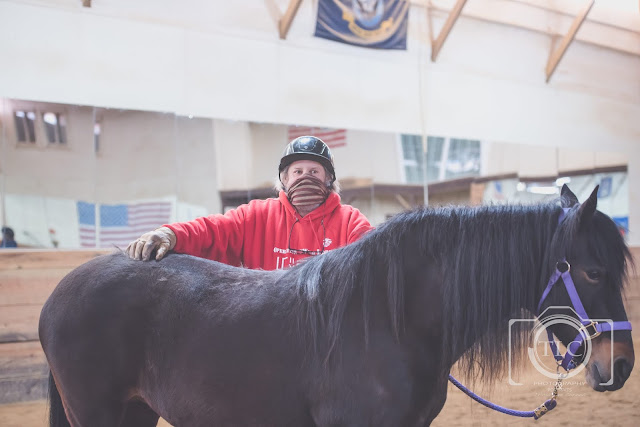On March 29, 1973, the last United States troops were withdrawn from Vietnam. In 2017, President Trump signed into law that National Vietnam War Veterans Day would be honored every March 29.
Though Vietnam veterans answered the call of their country, the homecoming for these men and women would be overwhelmingly unsavory. In a war that lasted nearly 20 years, the U.S. suffered more than 58,000 causalities, endured the pain of 1,253 MIAs and 2,500 POWs, and incurred more than 304,000 wounded. The U.S. government would confer 238 Medals of Honor upon those who served.
The Department of Veterans Affairs estimates that there are more than 6 million U.S. Vietnam veterans alive today.
These Vietnam veterans are a unique group. Many were drafted. Some suffered physical wounds, some were permanently disabled, many struggle with the continued and long-lasting effects of Agent Orange Exposure, and many continue to deal with the invisible wounds of war – namely, Post Traumatic Stress Disorder – after years of batting through readjustment problems that never were given a name.
Still many emerged as holding important roles in the U.S. including Jim Nicholson, Frederick W. Smith, John McCain and Colin Powell.
But the common thread is that they all were involved in a grueling war and returned to an unsupportive nation, some taking off their uniforms never to put them on again, in an effort to hide their service. I have personally interviewed Vietnam veterans who were spat upon, yelled at, and ridiculed at airports. I’ve heard the anger rise up as they speak. I’ve seen the tears that well up, fifty years or more after the experience.
In recent years, these men and women have worked hard to ensure that no soldier returns home to a similar experience. They have dedicated their lives to supporting troops and organizing parades. They also have begun to talk more frequently about their service and share their stories.
Two of these veterans – George and Marty, who found healing and respite at an organization called Operation Wild Horse in Bull Valley, Illinois – recently shared a sliver of their stories with me.
George, drafted by the U.S. Army, had a difficult time readjusting. In Vietnam, George was a “tunnel rat.” These men notoriously performed underground search and destroy missions, but coming home, George found it difficult to work for and, sometimes with, others. Eventually he started his own business, but in the interim, George suffered the breakdown of his first marriage, raised his children alone before remarrying, and then, recently, found peace alongside wild mustangs.
The irony resounds, but mustangs have long represented American freedom. Though domesticated, they still remember the fight or flight response that facilitated survival in the wild – and, veterans know that feeling all too well. Vietnam veterans, in particular, feel it.
Hardened by their experiences, they distrust before they trust. They often live an unsettled life. They sit with their back toward the wall. They are skeptical of motives. People can put on a façade.
But mustangs don’t judge. Mustangs don’t lie
U.S. Marine and Vietnam veteran Marty looks these mustangs in the eye. He told me that he didn’t realize he could love something so big so much. They don’t judge him on his past or on his current struggles. They meet him where he is. They know the struggles of survival – because they’ve been there, too. They’ve fought to stay alive … much like these Vietnam veterans. Marty’s bond has grown so close that he spends his own money that, in the past, he might have used to buy alcohol, on fresh vegetables and fruit for the horses at Operation Wild Horse. He told me that it has kept him sober.
These are the stories that touch me. These men, who endured much, on foreign soil on which they never asked to set foot, who fought for a country who failed to welcome them home, who sacrificed everything as they followed their commanders, who now are finding ways to make peace with the anger – they are the men who inspire me.
Click here to read the article I recently wrote about George, Marty, and Operation Wild Horse – learn how organizations like OWH are struggling during this pandemic, but continue to meet the very important needs of veterans of all eras. To learn more about the organization or to learn how you can support them, please visit: operationwildhorse.org
In my many years of working with and interviewing Vietnam veterans, I’ve found big hearts under gruff exteriors. I’ve found extraordinary stories buried deep under dense barriers. I’ve found tried and true friendships after a slowly developed trust. It has been one of the greatest joys of my life – to listen to these stories and to discover the strength and courage that lies beneath the “Vietnam Veteran” label. For some, it defines their entire existence. For some, it remains a hidden part of their past. For others, they wear the title with dignity. For still others, it has become so seamlessly woven into the fabric of their lives that the title is just one of many they wear well.
Today is a day to remember and honor these men and women. If you know a Vietnam veteran -or a Vietnam-era veteran, thank them. Listen to them. Welcome them home.
All veterans who served from November 1, 1955 through May 15, 1975 are recognized today – regardless of location.
“To ensure the sacrifices of the 9 million heroes who served during this difficult chapter of our country’s history are remembered for generations to come, I signed into law the Vietnam War Veterans Recognition Act of 2017, designating March 29 of each year as National Vietnam War Veterans Day. Throughout this Commemoration of the 50th Anniversary of the Vietnam War, and every March 29 thereafter, we will honor all those who answered our Nation’s call to duty.” -President Trump
 |






